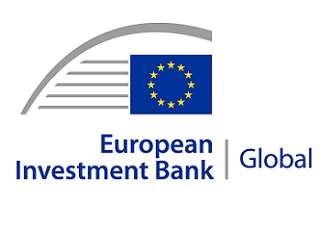- Vladimira Popovića 38-40
- 11070 Novi Beograd
- Tel: +381 11 3121 756
- Web: www.eib.org
- Enrolment date: 2017
The European Investment Bank (EIB) is the long-term lending institution of the European Union owned by its Member States.
Company name: European Investment Bank
Industry: Banking
Introduction: The European Investment Bank (EIB) is the long-term lending institution of the European Union owned by its Member States. We are the world’s largest multilateral borrower and lender. We provide finance and expertise for sustainable investment projects that contribute to EU policy objectives.
The EIB has been active in the Western Balkans since 1977. From 2001, the Bank has been providing finance totaling EUR 5.2 billion in favor of projects in Serbia supporting all major infrastructure sectors, as well as small and medium sized enterprises, industry, services and local authorities.
In 2010, the EIB opened a Regional Representation Office based in Belgrade in order to facilitate the development of EIB activity in the region, while underlining the commitment of the European institutions to supporting the Candidate and Potential Candidate Countries of the region in their journey towards the European Union membership.
Services: The EU bank improves people’s lives by providing finance and expertise for projects supporting innovation, SMEs, infrastructure and climate action. Our extensive lending, blending and advisory capacities are at the service of all EU citizens, as well as citizens in many non-EU countries.
We provide large project loans directly to public and private sector bodies. Smaller businesses and regional authorities are also supported. Intermediated loans and microfinance are managed by our network of local partner banks. SMEs also benefit from equity and debt funding via the EIB Group’s European Investment Fund. Our guarantees help mobilise resources from other sources.
As well as lending, we have a variety of sophisticated tools to help clients blend our financing with additional sources of investment such as: structured finance, guarantees, project bonds etc. We work closely with the European Commission, blending our loans with their grants to achieve an optimal financing package.
Advisory services complement the EIB’s lending activity. We make technical and financial expertise available to our clients to develop and implement investment projects and programmes, and to improve institutional and regulatory frameworks. For example: InnovFin Advisory guides its clients on how to structure their R&I projects in order to improve their access to finance, the European PPP Expertise Centre’s (EPEC) mission is to support the public sector across Europe in delivering better public-private partnerships (PPPs), JASPERS is a technical assistance partnership between the EIB and the European Commission for large projects in transport or other sectors, ELENA provides grants for technical assistance focused on the implementation of energy efficiency, distributed renewable energy and urban transport projects and programmes.
Contacts: Vladimira Popovica 38-40, 11070 Novi Beograd; phone: +381 11 3121 756; web: www.eib.org
A word from Dubravka Negre, Head of Representative Office for the WB
1. What are the core values of European Investment Bank business philosophy?
Guided by EU policy, the EIB Group fosters sustainable growth within the EU and abroad. We are firmly committed to sustainable development, which is anchored in our strategy and remains the foundation of our business model. This approach drives all of our initiatives, products and activities. Through our projects we aim at creating jobs and opportunity, a clean planet and a better quality of life for all of us.
The EIB appraises and monitors all the investment projects it finances with regard to their sustainability credentials such as environmental, social and governance aspects. The economic appraisal takes account of all resources used by the project, whether human, technological or natural, including for carbon and gauges, the value the project generates to all stakeholders, to determine whether society at large gains from the investment.
Only projects that fulfil both, our financial and our separate sustainability due diligence can be financed by the Bank.
2. How do you perceive European Investment Bank strategy for further growth on this market?
We follow the EU policy and in the Western Balkans we have a political mandate to help the integration of the region into the European Union in line with the EU Strategy. This is reflected in our operations that promote economic development, connectivity, both within the region and with the EU, climate change adaptation and improvements in the living standards.
We are also pleased to play a key role in various EU initiatives in the region such as the Western Balkans Investment Framework (WBIF), the Enterprise Development and Innovation Facility as well as the extension of EU programmes such as InnovFin and COSME. In addition, in 2016 the EIB at the request of the EU Council launched its Economic Resilience Initiative (“ERI”), as part of the joined response by the European Union to address the challenges posed by forced displacement and migration. ERI provides additional financing and technical assistance to countries and communities affected by refugee and migration issues including countries in the Western Balkans.
The continuation in building up Serbia’s infrastructure, such as transport, energy and municipal and social infrastructure, as well as support to financing of SMEs are equally important, and all these sectors are supported by EIB Group investments.
3. What is in your view the role of FIC and what are your expectations?
As the EU bank, we share the goal of the association to promote good practice from EU, transparency, principles of good business conduct and sound business ethics towards local companies, governments, and other external stakeholders.
We trust that the joint efforts to influence the improvement of business climate in Serbia by making concrete reform proposals, and sharing best practices of FIC members will help further economic development of the country.

